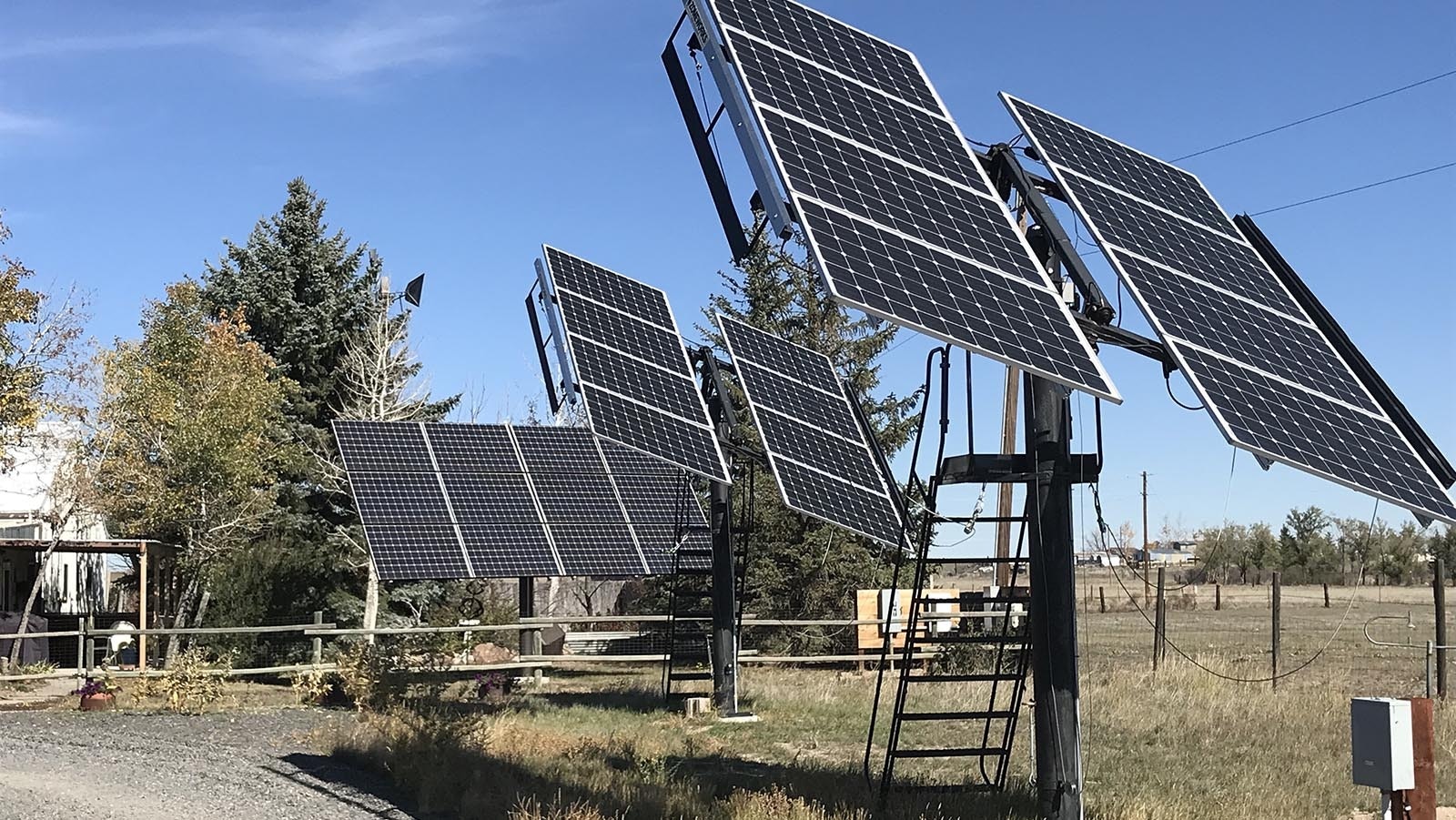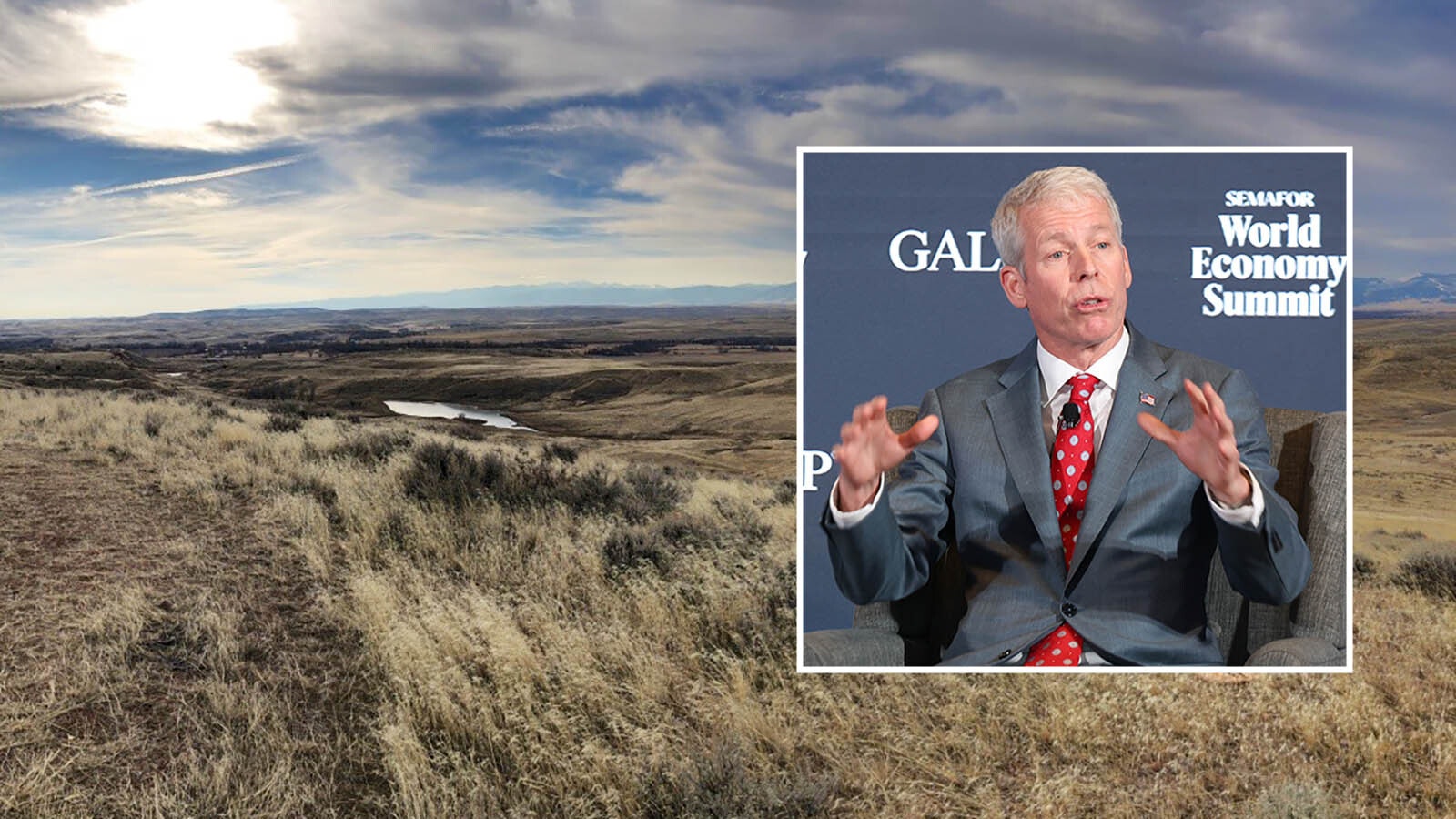The House Travel Committee has killed a bill to reform how residential renewable energy producers are paid for surplus energy they sell back to the grid.
Sen. Cale Case, R-Lander, was the sole sponsor of the Senate File 92. In last year’s legislative session Case, who has a Ph.D. in public utility economics, failed to pass a similar bill.
He said he didn’t seek other sponsors for this year’s push because the issue had become “too political.”
“I didn’t want to drag anyone else through this,” Case said during the Thursday meeting.
Net Metering
Case explained that customers pay utility companies a monthly charge to connect to the grid and then a usage fee based on how much energy they consume.
Utilities have large fixed costs, he said, and the monthly charges don’t cover all those fixed costs. Some of that is made up by usage fees, which are higher than operating costs.
Larger customers like industries and businesses pay higher rates, which makes energy more affordable for residential users.
Residential customers with rooftop solar and small wind generators at their homes use less power when their renewable generators are producing electricity. If they end up with a surplus of power produced, they receive a credit based on retail rates.
The Problem
The problem, Case said, is that as more residential wind and solar is added to the grid, those customers aren’t paying as much in usage fees, which lowers how much money utilities receive for fixed costs.
Case argued that as more residential renewable energy producers are added to the grid, people without rooftop solar and small wind turbines of their own would end up bearing a larger amount of those fixed costs than those who have them.
This effectively, Case said, makes it so people without rooftop solar and small wind are subsiding those who do.
“It’s important we be fair to all the customers,” Case said.
Cost Shifting
Under the current system, Case said, utilities are required to pay more for power than they otherwise would have without net metering.
As an example, a solar farm might produce really cheap power in June, when residential rooftop solar customers are also producing a lot of surplus power. The utilities then have to buy all that surplus rooftop power at retail rates before it buys any wholesale-rate power from the solar farm. If the demand isn’t high enough, ultimately the utility pays more for the power produced.
Case’s bill would make it so the Wyoming Public Service Commission (PSC) would set rates for what residential power producers are paid for that surplus power they produce. They would provide more expertise, Case argued, to make sure those rates are fair for everyone.

Many Opponents
A dozen people were present at the Capitol to testify for and against the bill. Another 17 people were online, most of whom were opposed to it. Because of time constraints, no testimony was taken from the people online.
The opponents disputed Case’s claim that small residential energy producers were being subsidized by the net metering system.
Jason Bloomberg, a Cheyenne physician who has wind, solar and battery facilities at his home property, said that 75% of customers in Wyoming are served by rural cooperatives. These cooperatives set grid access fees to distribute the cooperatives’ fixed costs evenly among all customers that are part of that cooperative.
Bloomberg said he pays a $44 access fee each month. When he has a surplus amount of power at the end of the year, the credits don’t roll over. They’re converted into cash at an undiscounted wholesale rate of 2.9 cents per kilowatt hour.
Then, when his household buys power back in January through March, the household pays the full retail rate of 9.5 cents per kilowatt hour.
“While that may not sound like much, it means the co-op basically is selling back to us power we generated at approximately 3.3 times the price they paid,” he explained.
Bloomberg said that the cooperative he’s a member of also doesn’t pay all the infrastructure costs of his wind, solar and batteries.
Unnecessary Bill
Era Aranow, legislative advocate for the Wyoming Outdoor Council, said the bill is unnecessary as rooftop solar only generates 0.5% of residential electric sales. That level of saturation, Aranow said, was reached after two decades.
Aranow said that numerous studies conclude that significant cost shifts from net metering do not happen until saturation reaches 5% to 10% of residential electric sales.
“That’s roughly 10-20 times what we currently have and will take decades to achieve,” Aranow said.
Aranow also warned that changes to net metering policy creates uncertainty, which would deter investments in residential renewable energy systems.
Not Settled
Chris Petris, chairman of the PSC, said whether or not there’s some level of subsidy in the net metering system today is “not a settled matter.”
However, Petris said, “the information that we have seen does definitely suggest … that in fact there probably are some subsidies present in the current system.”
Petris said that the PSC sets rates, and there’s no way to set rates perfectly. As an example, a customer that is further from a substation requires more transmission infrastructure to supply power. So, the PSC tries to create some consistency and set rates that are “just and reasonable,” Petris said.
The rates are set by class, so that residential customers pay rates that are lower than industrial customers pay. That way, customers who use more power bear more of the costs of the system.
Rapid Growth
Rick Kaysen with Rocky Mountain Power said the utility is supportive of rooftop solar, but the company also supported SF 92. He referred to Petris’ testimony as evidence that net metering customers are unfairly benefiting from the current system.
“All we’re asking for is for customers, whether they’re a net metering customer or a non-net metering customer, is to pay the rates that are just and reasonable,” Kaysen said.
David Bush, state government affairs manager with Black Hills Energy, said that residential rooftop solar is increasing rapidly.
In the Cheyenne area, between 2018 and 2023, they’ve had 806 residential renewable energy systems added to their customers. From 2014 to 2017, they added 126 systems. In the past couple of months, they’ve added 22 more.
“The growth in Cheyenne is pretty stark,” Bush said.
He said federal tax credits, as well as grants coming down the pipeline, are going to support the residential wind and solar industry and investment.
“It’s not going to be whether or not we have a state subsidy basically,” Bush said.
End Of The Road
The bill originated in the Senate Corporations Committee, which in a 3-2 vote in January gave it a recommendation that the Senate pass it. The Senate passed it on third reading 18-11 on Jan. 30.
At the House Travel Committee hearing Thursday, Rep. Liz Storer, D-Jackson, motioned to table the bill, but the motion didn’t receive a second. Rep. Donald Burkhart, R-Rawlins, then motioned to move the bill, but it also didn’t receive a second.
The bill effectively died in the committee and will not be heard on the House Floor without a two-thirds vote from the House to overrule the committee.
Speaking after the committee meeting, Bloomberg said he was satisfied with the outcome, but he expects the bill will return next year.
“I think it’s a good outcome. I think this continues to be a solution in search of a problem,” Bloomberg said.





